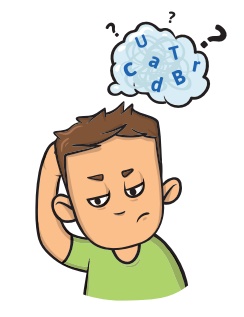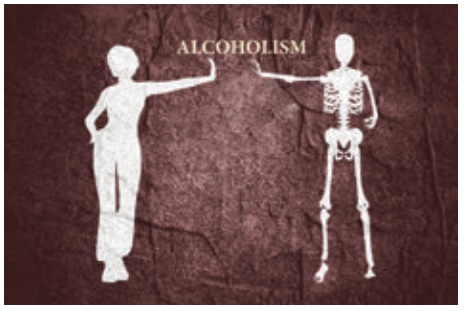Non Communicable Diseases - Causes, Risk factor, Signs and Symptoms, Diagnosis, Management, Complication - Behavioural Disorders | 12th Nursing : Chapter 3 : Non Communicable Diseases
Chapter: 12th Nursing : Chapter 3 : Non Communicable Diseases
Behavioural Disorders
BEHAVIOURAL
DISORDERS
·
Dyslexia
·
Alcoholism
1. Dyslexia
Dyslexia means
difficulty in reading or learning to read accompanied by difficulty in writing
and spelling correctly.
‘Dys’ means difficulty
‘lexia’ means words

Causes
·
Congenital
·
Acquired brain damage
·
(Birth trauma use of medication like phenobarbitone)
Signs and Symptoms
Difficulties with
Concentration
Perception
Memory
Verbal skills
Abstract Reasoning
Hand eye co ordination
·
Lazy
·
Rebellious
·
Isolation
·
Discouragement
·
Low – self esteem
Dealing with dyslexia
·
Professional testing is necessary for the accurate diagnosis of
dyslexia
·
A different examination criteria has to be checked out
·
The uses of computers and calculators are very beneficial to these
children
·
There are children who need to be identified early and taught in way
they can understand and learn which is not of the normal teaching style
·
Since language is a problem, these children are to be extempted
·
A dyslexia must have to one training to first develop basic skills.
This allows the student to stay focused
Parent and teacher handling of dyslexia child
Parent:
·
Manage his or her time
·
To put things in its place
·
Help him with his or her homework Help him with his or her
reading To focus his or her attention To take right book to school
·
By giving precise clear instruction
·
By not punishing him or her for his or her childishness delay in
completing his work
·
By giving him or her constant positive inputs
·
By instructing him or her with more do’s than don’ts
·
By imparting social skills, like interaction communication giving
respect to elders etc
Teachers:
·
The teachers can try to meet the special needs of the children by
identifying the areas of special interest and talents and help the child to
build on strengths. They can help by:
·
Giving less written class work and home work
·
Testing them orally
·
Giving marks for content without reducing marks for grammatical
and spelling errors
·
Marking less red lines in the note book
·
Introducing abstract ideas through pictures and objects
·
Giving precise, clear and short instructions Giving extended time to finish tests
·
Reading the question paper during the class Maintaining eye contact during the class
·
Not punishing the child for messy work and poor handwriting
·
Emphasising on quality work rather than quantity
·
Avoiding punishments for minor misbehaviours in the class
Management
·
Remedial education
·
Medical approach
·
Psychological approach
Remedial education:
Remedial education is
the most effective therapy. Various types of cognitive perceptual skills
training, For example, sensory integration training, perceptual motor training,
occupational therapy, auditory memory training, vestibular stimulation,
hemisptieric stimulation and optometric training.
Medical approach:
Medical approaches to
treating dyslexia include stimulant medication, anti – anxiety medication,
motion sickness medication, vitamins and special diets.
Psychological approach:
Psychological approaches
to dyslexia include supportive psychotherapy, parent guidance and training,
social skill training, relaxation training and behaviour modification
approaches.
2. Alcoholism
Alcoholism is a disease
characterised by the habitual intake of alcohol and it interferes with physical
or mental health or with normal social or work behaviour.

Signs & Symptoms
·
Confusion
·
Memory loss
·
Slow or irregular breathing
·
Cold or clammy hand due to hypothermia
·
Falling unconscious and not waking up
·
Cyanosis
·
Seizures
Causes
·
Environmental factors
Pathophysiology
Alcohol affects almost
all cells of the body. It changes levels of neurotransmitters in the central nervous
system (CNS), affecting all areas and functions of the CNS. These include
centers that control our impulses, mood and behaviour, coordinate motor
activity and promote respiratory and cardiac function. The immediate effects of
alcohol depend on a person’s susceptibility to alcohol and their BAC (Blood
Alcohol concentration).
Management
·
Complete abstinence from alcohol
·
Punishment such as heavy fine, imprisonment
·
Using medicines
·
Destroying craving for use of stimulating alcohol
·
Meeting of alcoholic anonym
·
Psychotherapy include
Advice and Suggestion
Moral encouragement
Hypnotism
Complications of alcoholism
·
Hepatitis
·
Cirrhosis of liver
·
Pancreatitis
·
Stroke
·
Osteoporosis
·
Hypertension
·
Myocardial Infarctions
·
Angina
·
Vitamin deficiency
·
Accidents and injuries
·
Increased risk of cancer
Related Topics